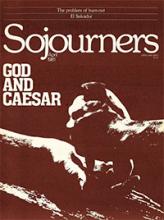And the Lord went before them by day in a pillar of cloud to lead them along the way, and by night in a pillar of fire to give them light, that they might travel by day and by night; the pillar of cloud by day and the pillar of fire by night did not depart from before the people. -- Exodus 13:21-22
There are, thanks be to God, times in our lives when we have known the presence of God. There are times when we have experienced clarity about what we are called upon to do or say; times when a command seems imbedded in our circumstances, and we are irresistibly drawn to follow that command into decision. There are times when a person comes into our life as a gift of grace, offering us the opportunity to love again. That person may be a child, a relative, a friend or a stranger, and through that individual we experience a claim on our lives.
And then there are those rare moments when the glass through which we see so darkly is, however briefly, transparent; we are allowed to see deeply into the nature of things, and we are convinced once again that life has meaning and we are not alone. In those moments we have been given the sight to see the orchestration of God's grace which we suspect lies all around us every moment of every day but which we usually do not see.
I call such times as these "the presence of God." It really doesn't much matter what words we use. What we know is that we can believe that the Hebrew people could believe that the Lord went before them by day in a pillar of cloud and by night in a pillar of fire. We can believe that they believed because we too have known something of the cloud and the fire. We have known something of that leading by day and by night. We have known something of the presence of God.
Read the Full Article

